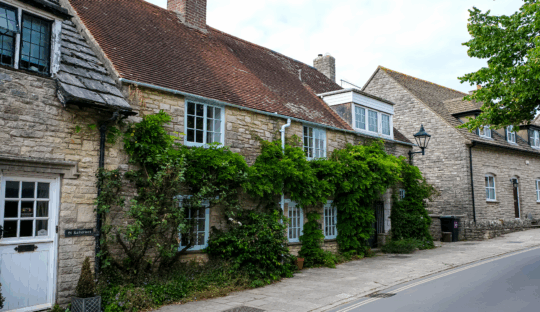In this article
Investing in a buy-to-let property can be a smart way to grow your wealth and generate rental income. That said, understanding the deposit requirements is crucial before taking the plunge.
Unlike residential mortgages, buy-to-let properties usually demand a larger deposit to protect lenders from perceived risk. Here’s everything you need to know about how much you’ll need to save.
How Much Deposit Do I Need For a Buy to Let?
Explained in 2 mins 50 seconds
Find more videos like this on MoneymanTV
Standard Deposit Requirements
Most buy-to-let mortgages require a minimum deposit of 25% of the property’s value. While some lenders may offer deals with a 20% deposit, these often come with more stringent conditions, such as higher interest rates.
A deposit of around 30% to 40% is ideal for those looking to access the best mortgage rates, lowering overall borrowing costs and potentially boosting your return on investment.
The higher deposit requirement reflects the additional risks associated with rental properties.
If you’re switching from a residential mortgage to a buy-to-let mortgage or entering the market as a new landlord, you’ll need to demonstrate a strong commitment to securing the loan.
Factors That Influence Your Deposit
The size of your deposit can vary based on several factors. One major consideration is the type of property you plan to invest in.
If you’re purchasing an HMO (House in Multiple Occupation) or a holiday let property, lenders often require a larger deposit due to the unique risks involved.
HMO mortgages, for example, involve multiple tenancies, which can present challenges in terms of income stability. Similarly, holiday let properties may have fluctuating rental demand, making lenders more cautious.
Your age can also play a role in determining deposit size. If you’re seeking a buy-to-let mortgage and are aged 50 or older, some lenders may require additional financial assurance, such as a larger deposit or a clear repayment plan.
This becomes even more critical if you’re exploring a buy-to-let mortgage at age 60+, as lenders often take your long-term repayment strategy into consideration.
Speak to an Advisor – It’s Free!
Schedule a free callback from one of our experts today.
- All situations considered
- Transparent and honest mortgage advice
- We search 1000s of purchase and remortgage deals
Our customers rate us 4.9/5
Lowering Loan-to-Value Ratios
The size of your deposit directly impacts the loan-to-value (LTV) ratio. A higher deposit reduces the LTV and can lead to better interest rates and terms from lenders.
For instance, putting down a 35% deposit results in a 65% LTV, which often allows you to access more competitive rates, ultimately saving you money over time.
By opting for a lower LTV, you also lower the perceived risk for the lender, increasing your chances of a successful mortgage application.
Using Equity for Buy to Let Investments
If you’re short on the required deposit for a buy-to-let mortgage, there are alternative strategies to consider. Buy-to-let remortgages offer an opportunity to release equity from existing properties.
This approach can free up funds for new purchases, renovations, or even improvements on your current property, making it an attractive option for experienced landlords.
Similarly, leveraging a bridging loan can help you finance the gap when moving quickly between investments or upgrading properties.
For example, refurbishment buy-to-let mortgages allow landlords to improve properties, potentially increasing their value and rental yields.
This strategy works especially well for those planning to expand their portfolio or enter the market with a high-value asset.
Making the Most of Your Buy to Let Mortgage
Understanding your deposit requirements is key to successful property investment.
Whether you’re considering an HMO, a holiday let mortgage, or expanding your portfolio through a buy-to-let remortgage, working with an experienced mortgage advisor can make a difference.
By comparing the market and exploring all available options, you can tailor your approach to meet your financial goals while maximising potential returns.







